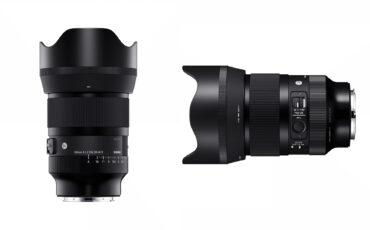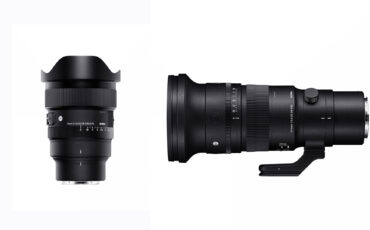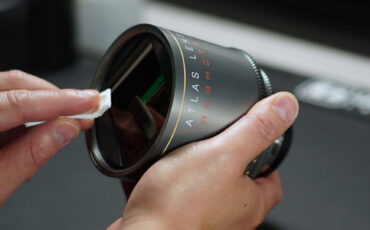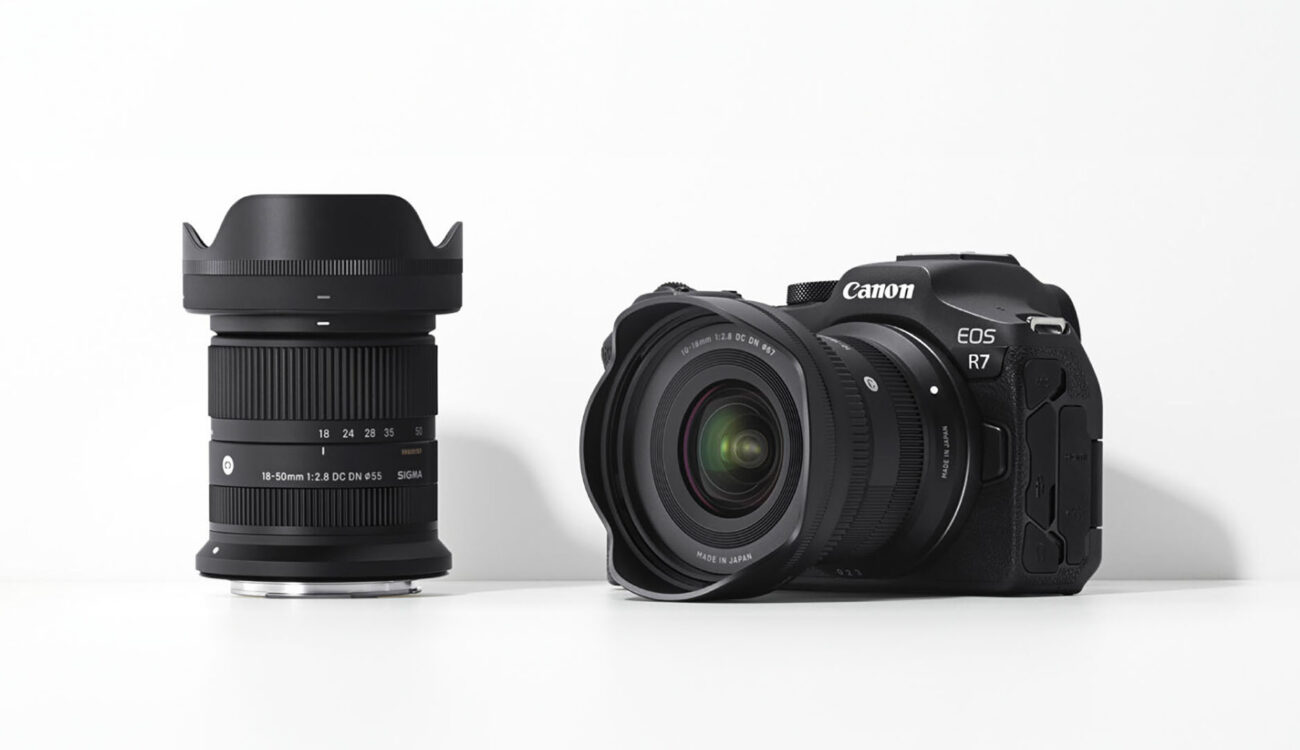
SIGMA has announced their much-anticipated upcoming launch of RF lenses for Canon mirrorless cameras. The company will soon start producing various lenses for the Canon EOS-R system, starting with their venerable APS-C line. This should fill an apparent gap in Canon’s lineup, between entry-level, rather slow zoom lenses and high-end RF L lenses designed for Full Frame use. SIGMA will start with their 18-50mm f/2.8 DC DN contemporary lens, providing the RF system with its first dedicated APS-C constant aperture zoom. The rest of the APS-C line will follow shortly after.
SIGMA has gained massive popularity for their Art series – in my opinion, one of the most influential lens lineups in the field of modern photography. But SIGMA is larger than the Art series. Known for their ability to produce exceptional optics at reasonable prices, the company used their vast experience to create some interesting APS-C options, designed specifically for the smaller sensor size (similar to Super35). The company’s APS-C line only includes six lenses, but each one represents a popular classic field of view paired with fast f/1.4 or f/2.8 aperture on primes and zooms respectively. The first lens to launch for the Canon RF mount is arguably the most popular. The 18-50 f/2.8 DC DN is a classic, normal zoom suitable for most mainstream stills, video, or hybrid jobs. This lens comes at a miniature stature, almost pocketable. (Watch our lens review on a FUJIFILM camera below)
The most recent addition to the lineup is the wide SIGMA 10-18mm F2.8 DC DN | Contemporary. This lens features the same compact design philosophy while maintaining high optical quality and constant fast aperture. Additionally, SIGMA adds four prime lenses to the popular combined 10-50mm zoom range. This includes the new 23mm f/1.4 DC DN announced last year as well as the initial 16-30-56 f/1.4 DC DN trio. This trio was also available for the now-deceased Canon EOS-M system. SIGMA’s lenses filled the fast prime gap for the EOS-M system, and will now do the same for its APS-C RF successor.
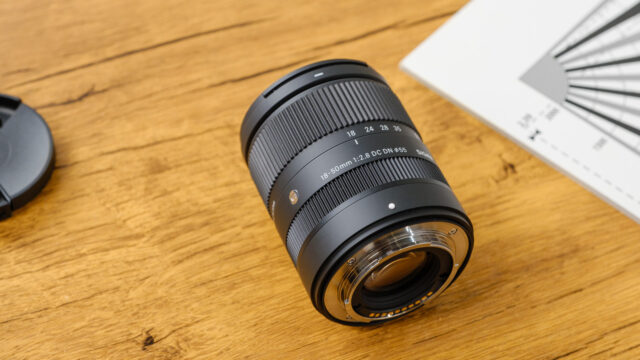
The state of the EOS-RF mount
Canon’s RF system is relatively new, and its APS-C iteration is about two years old, or about four if your count starts with the EOS C70. Canon put a lot of effort into the RF lens lineup, significantly emphasizing full-frame. This strategy left the APS-C users with a choice of relatively low-end, slow, variable aperture zoom lenses designed for APS-C, heavy and pricey full-frame lenses, or adapted EF lenses with the added bulk of an adapter and long flange design. No fast, compact, affordable f/1.4 primes, no constant aperture zooms.
SIGMA to the rescue (as before…many times)
It seems that Canon (as well as other full-frame camera manufacturers) tends to put less R&D effort into APS-C lenses. Unlike most camera manufacturers, SIGMA has the advantage of working with all major camera systems. This allows for high efficiency as the company can develop an optical formula that will work on various camera systems with the slightest adjustments between mounts. This is a win-win situation as it helps camera manufacturers fill their gaps, making their somewhat neglected APS-C lines more complete, and helping SIGMA sell more lenses.
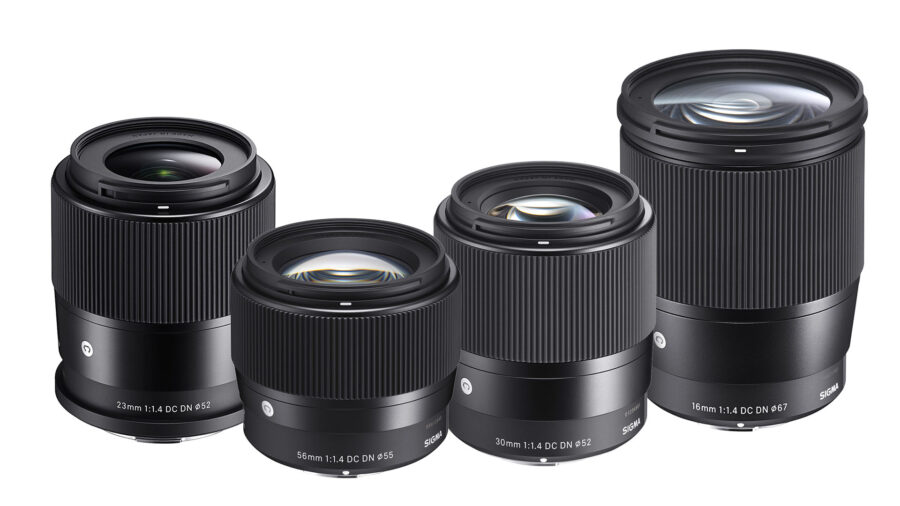
A quick look at the APS-C options available for Nikon Z, Canon RF, or L-Mount users will reveal the importance of the SIGMA addition. Sony E-Mount users do enjoy a broader APS-C line, thanks to the mount’s APS-C roots. For FUJIFILM users, SIGMA mostly offers more affordable options and more compact zoom lenses since this is an APS-C-only system.
What about some Art lenses?
It seems as if SIGMA tends to start their integration to a new mount with their APS-C line. The same happened with the recent announcement regarding the Nikon Z mount about a year ago.
While I assume most of us are eager to see the company’s popular Art lenses mounted on an EOS R5 or RED, the current move is very logical. The APS-C market is less demanding and less professional. It will let the company collect important data in order to fully map the pitfalls ahead before diving deep into the more competitive full-frame realm.
Price and availability
Lens pricing will not change significantly. The 18-50mm f/2.8 DC DN Contemporary availability is due in July 2024 with the rest coming in the fall of 2024 and later (no specific dates for now)
Will these new lenses help you reconsider the APS-C EOS-R cameras for your work (and play)? Let us know in the comments.
